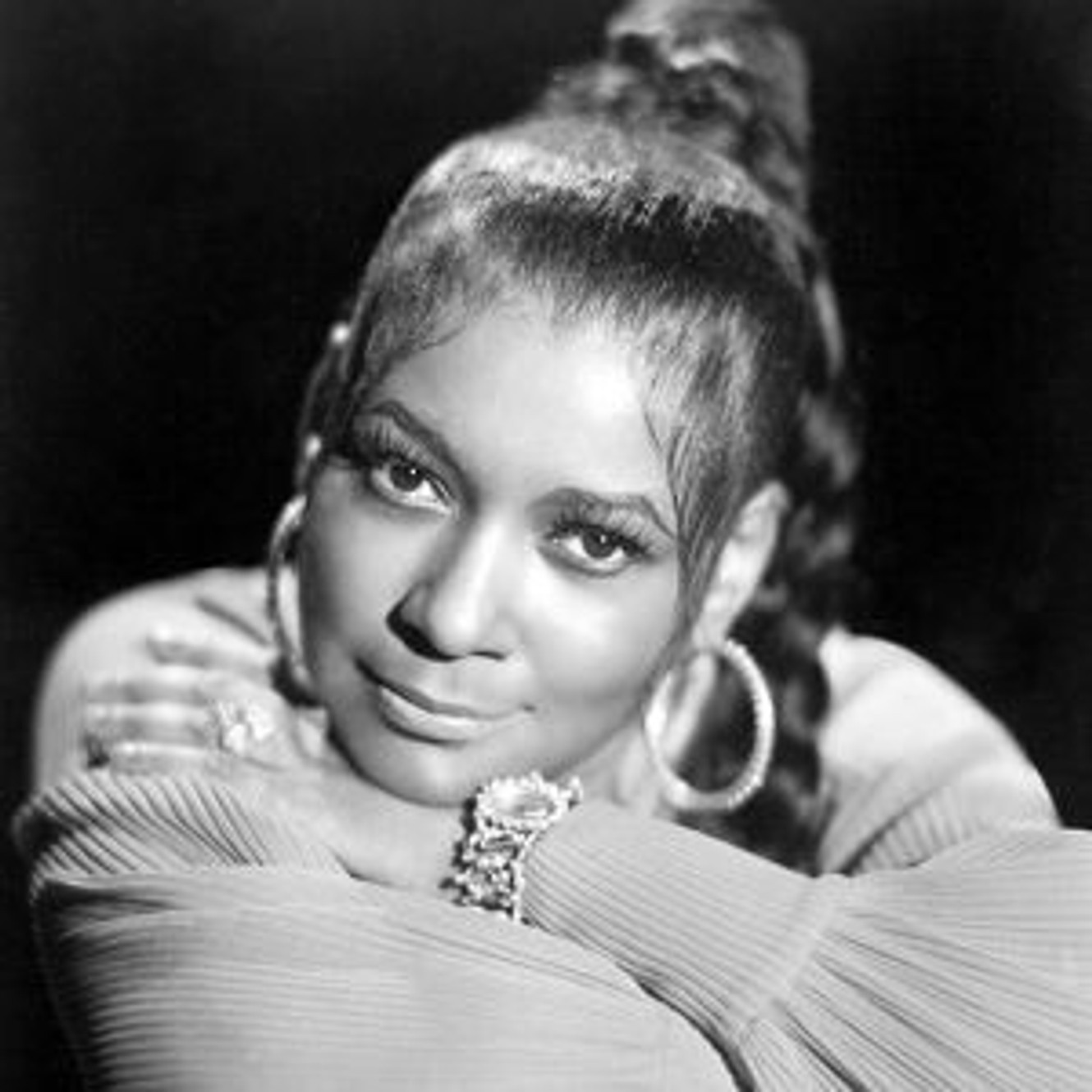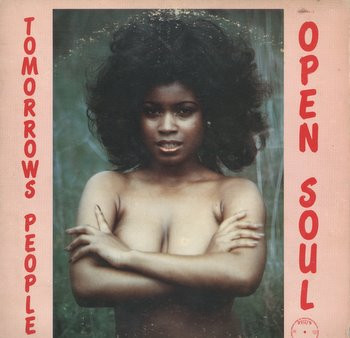
A tribute to Clarence Johnson, Sylvia Robinson, and Marv Tarplin on Sitting in the Park
In this memorial episode of Sitting in the Park, Bob Abrahamian pays heartfelt tribute to three influential yet often under-recognized figures in soul music history—producer Clarence Johnson, label founder Sylvia Robinson, and Miracles guitarist Marv Tarplin. Through a carefully curated set of 45s and personal commentary, Abrahamian traces Johnson’s impact on the Chicago soul sound, explores Robinson’s groundbreaking work across labels like Stang and Sugar Hill, and celebrates Tarplin’s guitar-driven contributions to The Miracles’ most enduring songs. This episode becomes not just a remembrance but a living archive of soul’s unsung architects.
Bob Abrahamian’s memorial episode of Sitting in the Park, aired on WHPK 88.5 FM, isn’t just a radio broadcast—it’s an act of preservation. As he spins one dusty 45 after another, Abrahamian doesn't simply share records; he revives histories. This special show, dedicated to the recent passing of producer Clarence Johnson, label visionary Sylvia Robinson, and guitarist Marv Tarplin, shines a light on three crucial yet often-overlooked architects of soul music.
Clarence Johnson: The Bass Singer Who Built a City’s Sound
Bob opens the episode with a tribute to Clarence Johnson, a man whose name may be unfamiliar to casual listeners but is sacred among collectors and soul purists. Johnson was more than just a behind-the-scenes producer—he was one of the sonic architects of Chicago soul in its early 1970s heyday. His productions—from Little Jimmy Gandy’s “I’m Not Like the Others” to Brighter Side of Darkness’s chart-smashing “Love Jones”—defined a period where Chicago soul began to differentiate itself from its Southern and Motown cousins.
What’s striking is Bob’s contextualization of Johnson’s origins—not as a producer but as a bass vocalist in The Chantours, a group that would evolve into The Chi-Lites. Johnson’s later foray into the lesser-known group The Tyshones shows his enduring commitment to artistry, even after his move into production. This kind of backstory is exactly what Abrahamian’s show does best: taking names relegated to liner notes and elevating them to their rightful stature in soul’s family tree.
Marv Tarplin: The Miracle Behind the Miracles’ Sound
The transition from Chicago to Detroit’s Motown is marked by the solemn acknowledgment of Marv Tarplin’s death. A guitarist often hidden behind Smokey Robinson’s charisma, Tarplin was in fact a co-writer on some of The Miracles’ most emotionally potent material. Abrahamian spins “My Girl Has Gone” and “The Love I Saw in You Was Just a Mirage”—songs where Tarplin’s subtle, melodic guitar work gave Smokey’s falsetto a soulful bed to rest on.
In recognizing Tarplin, Bob highlights a truth often forgotten in mainstream histories: guitarists like Tarplin were not just backing musicians, they were co-creators of the Motown sound. Tarplin’s image gracing The Miracles’ album covers is more than symbolic—it’s a reminder that soul’s emotional depth often began with six strings.
Sylvia Robinson: The Matriarch of Independent Soul (and Hip-Hop)
But perhaps the most far-reaching tribute in this episode is to Sylvia Robinson. Bob charts her journey from “Love Is Strange” as part of Mickey and Sylvia, to her era-defining solo hit “Pillow Talk,” and finally to her stewardship of groundbreaking labels like Stang, Vibration, All Platinum, and Sugar Hill. Through these imprints, she released records by The Moments, The Whatnauts, and Linda Jones, crafting a sophisticated East Coast soul sound that combined lush arrangements with raw emotion.
What Bob emphasizes—and rightly so—is Robinson’s vision as a label head. Long before launching the first commercially successful rap record with “Rapper’s Delight,” she was producing intimate, sensual soul cuts that explored themes of vulnerability and longing with a kind of feminine perspective that was rare at the time.
Abrahamian’s playlist illustrates this breadth: from Susan Phillips’ “Key in the Mailbox” to the overlooked Spoilers’ “Sad Man’s Land,” we hear not just hits but the emotional textures Robinson championed. Even a minor anecdote—Bob lamenting a broken Moments CD—reveals the depth of his devotion to Robinson’s catalog.
Bob Abrahamian 00:00
Okay, you are tuned to WHPK 88.5 FM in Chicago. You're listening to the Sitting in the Park show. I'm going to be doing a music show today—but a slightly different one. It's going to be themed in honor of a few people who passed away recently, specifically Clarence Johnson, Sylvia Robinson, and Marv Tarplin of the Miracles. People are passing away all the time now. It's really sad that a lot of people who made this music are getting up in age.
But specifically, Clarence Johnson produced a lot of the records in Chicago that kind of defined, in my mind, the early '70s, late '60s Chicago soul sound. "Love Jones" was his biggest hit. Sylvia Robinson had one of the most important East Coast record labels—Stang, Vibration, All Platinum. There’s a set of labels, a few other ones too, and they released records by the Moments and the Whatnauts.
So for the first part of the show, I'm going to be playing Clarence Johnson productions. Then, for the second part, I’m going to be playing Sylvia Robinson productions. This first record, people should remember—this is Little Jimmy Gandy. This is I'm Not Like the Others.
Bob Abrahamian 25:09
You're tuned to WHPK 88.5 FM in Chicago. You're listening to the Sitting in the Park show. This is a soul show that airs every Sunday night from 7:30 to 9:00 PM.
That last set was a collection of Clarence Johnson productions—those were most of his bigger hit records. Actually, he produced a lot more obscure material as well.
The first record was Little Jimmy Gandy with I'm Not Like the Others. Then we heard The Love Lites with How Can I Tell My Mom and Dad, followed by Heaven and Earth with I Can't Seem to Forget You. After that, The Legends with Something to Remember You By, and The Brighter Side of Darkness with Love Jones. Then it was The Love Lites again with Your Conscience, Heaven and Earth with Guess Who's Back in Town, and the last cut was by Coffee with Your Love Ain't as Good as Mine.
Many people don't know that Clarence actually started off as a singer. I think he sang bass—that's what people have told me—in a group called The Chantours, who had that song Grizzly Bear around 1963. That group eventually evolved into The Chi-Lites. Eugene Record was a member of that group, and they sort of merged with a rival group to become The Chi-Lites.
Most people also don't know that Clarence sang in another, more obscure soul group called The Tyshones. That was actually after he had already started producing records—he gave singing one more shot. Of course, his biggest hit as a producer was Love Jones.
Very sad news that he passed away. His records really had that signature early ’70s Chicago sound—the sound I always think of when I think of Chicago soul in the ’70s.
Unfortunately, some more sad news: Marv Tarplin, the guitarist for The Miracles, also passed away. He's on a couple of their album covers—you can actually see him pictured there.
So I'm going to play a couple of Miracles songs that he wrote or co-wrote, in honor of him. Then I’ll dedicate the rest of the show to Sylvia Robinson and her labels.
If you want to call in, the number here is 773-702-8424.
This is The Miracles with My Girl Has Gone.
Bob Abrahamian 35:20
Okay, you're listening to the Sitting in the Park show.
Those last few songs were all by The Miracles—records co-written by Marv Tarplin, who was the guitarist for the group and who sadly passed away a few days ago. First was The Miracles with My Girl Has Gone, and then I played The Love I Saw in You Was Just a Mirage.
Now, I’m going to dedicate the rest of the show to songs produced by legendary record producer Sylvia Robinson.
You probably know she had a hit record back in the 1950s as part of the duo Mickey and Sylvia—the song was Love Is Strange, which, of course, everyone knows. Later on, she went on to form a record label, I think sometime in the late 1960s.
The main label was called Stang, but she also had others, including All Platinum and Vibration, along with a few smaller sub-labels. She ended up releasing a lot of tracks by a wide range of artists. Her main hit-making act was The Moments—they cut a lot of fantastic sides for the label. The Whatnauts were another one of the big artists associated with her labels.
And, of course, Sylvia had a solo hit herself with Pillow Talk, which I’m going to play first.
A caller just phoned in and reminded me that she also released the first huge rap record—Rapper’s Delight—on her Sugar Hill label. That was her label too.
So this first record in the set is Sylvia with Pillow Talk.
Bob Abrahamian 57:11
Okay, you're tuned to WHPK 88.5 FM in Chicago. You're listening to the Sitting in the Park show. My name is Bob, and this show airs every Sunday night from 7:30 to 9:00 PM.
That was just a set of records that all came out on Sylvia Robinson’s Stang, All Platinum, and Vibration record labels, in memory of Sylvia, who passed away just a few days ago.
We started off with her big solo hit from the ’70s, Pillow Talk. After that, we heard Linda Jones with For Your Precious Love, The Moments with I Lost One Bird in the Hand, and The Whatnauts with I’ll Erase Away Your Pain.
Next was The Spoilers—an obscure group from New Jersey—but that track, Sad Man’s Land, is one of my personal favorites on the label. And the last cut in that set was a singer named Susan Phillips with Key in the Mailbox. Actually, Sylvia and George Kerr produced at least three different versions of that song, each recorded by a different female singer.
Now, some bad news related to tonight’s show: I play almost all 45s on this program, and I didn’t want to bring a whole stack of Moments 45s tonight, because I had a CD with most of their tracks on it. But when I pulled it out of the case, I found the CD was cracked in half.
I had planned to play mostly Moments records tonight—they’re one of my favorite groups of all time—but I can’t do that now, because I didn’t bring the vinyl, and the CD is broken. I’m really sorry about that.
But I do have a bunch of Whatnauts records—also on CD—and thankfully this one’s not cracked. So I’ll be playing those for at least the next 15 minutes.
If you want to call me, the number here is 773-702-8424.
This first record in the set is The Whatnauts with What’s Left to Give (After Giving It All).
Bob Abrahamian 1:18:40
Bob, okay, you're tuned to Wh PK 88.5 FM in Chicago. You are listening to the sitting in the park show. My name is Bob, and this show happens every Sunday night from 730 to 9pm and we stream live on the internet at W, H, k.org, and I have a website where I archive my music shows and my interviews. That's at WWW dot sitting in the park.com that was just a set of all records by the whatnots in memory of Sylvia Robinson, who passed away, who had record label that the whatnots were on, as well as many other important solo artists like the moments Luna Jones and the Sugar Hill gang even start off that set with what's left To give after that. Try me, please make the love go away. We'll always be together and you forget. Too easy, okay, I got five minutes left of the show, enough time for one

